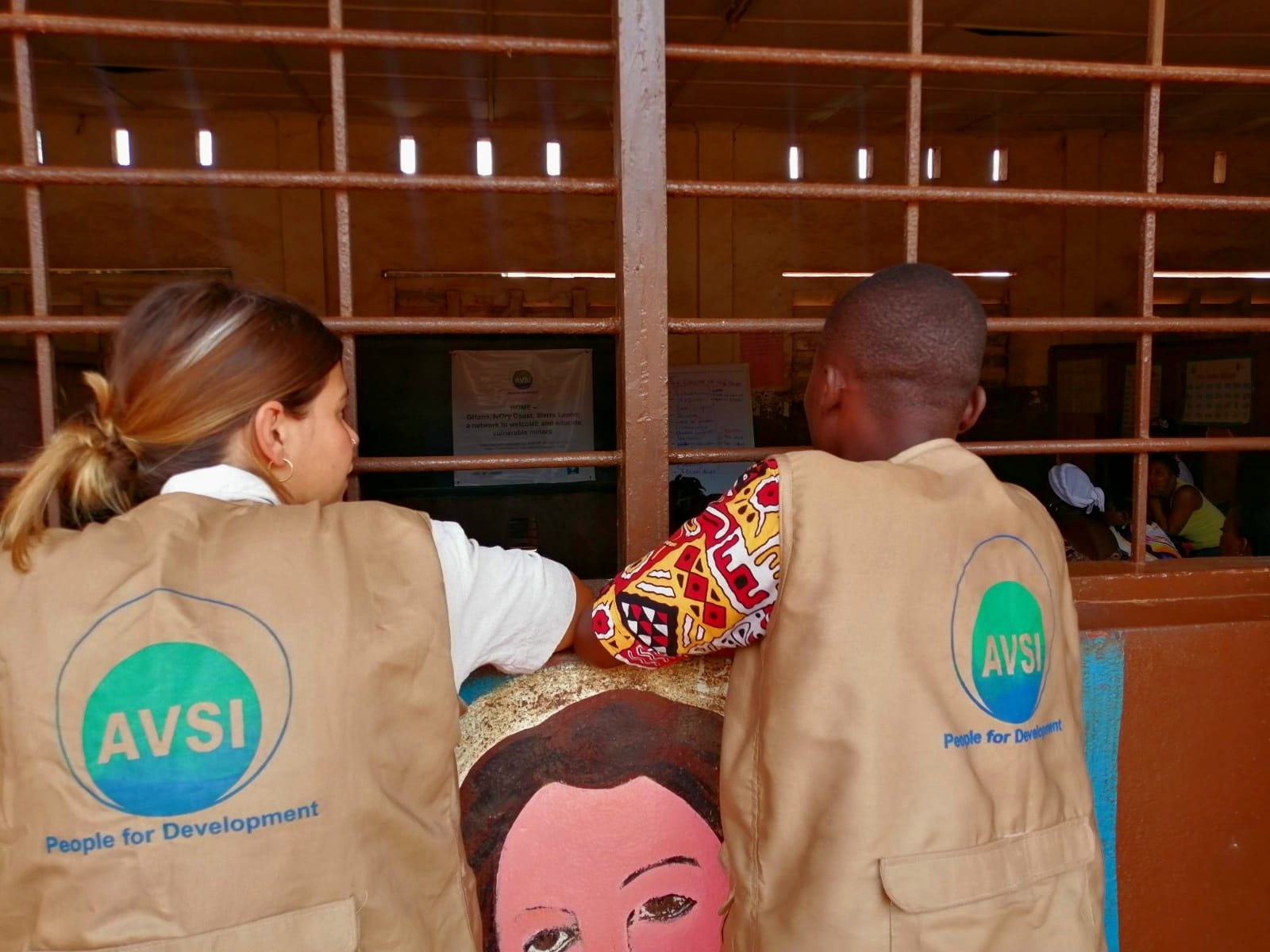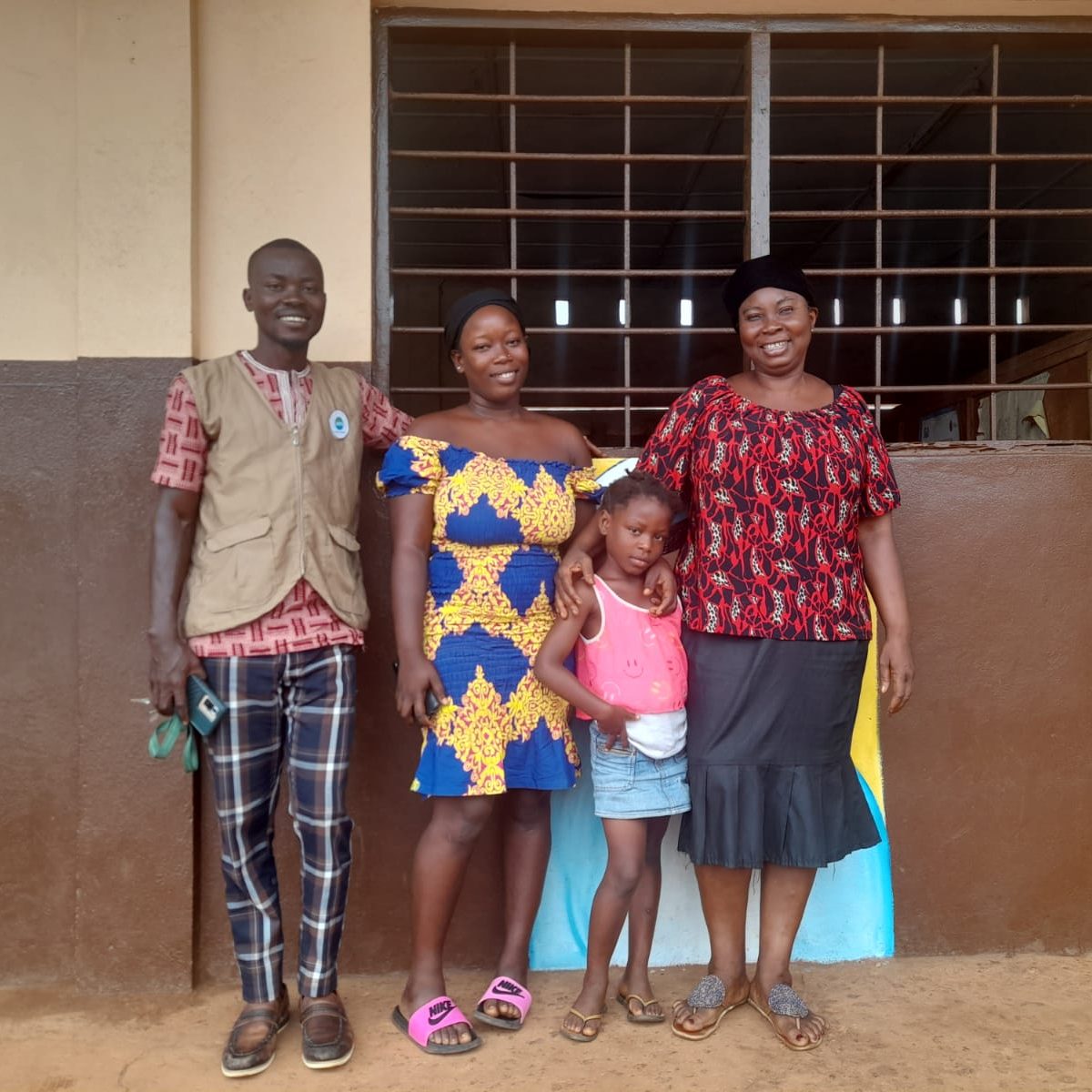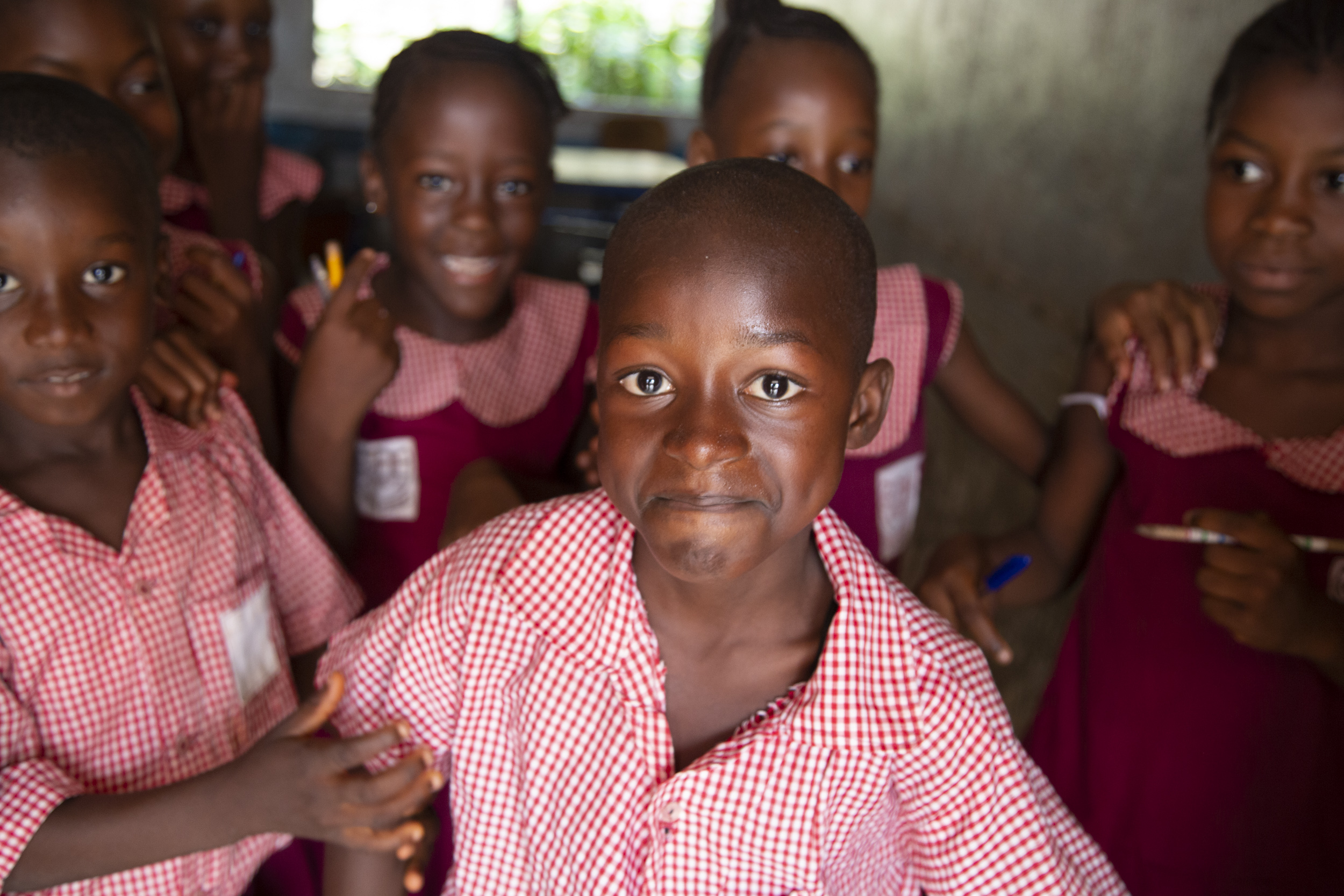AVSI Sierra Leone, thanks to the HOME project, funded by CAI, is committed to guaranteeing the right to education for many children, who otherwise would not have the opportunity to go to school.
Sallay is an 8-year-old girl who lives in Freetown with her aunt and her cousins as her parents died of Ebola.
This is very common for children in Sierra Leone where they do not live with their biological parents but with close relatives who care for them both economically and emotionally.
These children are called Menpikin, which in Krio, the local language, means “foster care”.
This informal practice is culturally widespread throughout the country.
For Sallay it is not easy to attend school since her house is more than an hour away walking from school. Every time she arrives late, she can’t attend classes for the entire day. In addition, like many other children, she has to get up at dawn to do housework before school.
The principal of the school, noticing the many absences of Sallay, started to monitor the situation noting that the child was often on the sidelines without actively participating in class.

"Sallay was very silent, she was never with other children and had no interest in learning".
Told to AVSI the principal of the school
Thanks to the close cooperation between the school and AVSI, the principal told about this vulnerable case to Musa -a AVSI social worker in Sierra Leone - and together they started working to improve the situation.
To make the teacher better understand the child's difficulties, the social worker decided to make her experience firsthand what Sallay feels every day. Together they walked from the school to Sallay's house, taking more than an hour. The teacher told us about the fatigue and difficulties encountered along the way.
Thanks to the great work of the social worker, the teacher understood that Sallay often arrives late not because she does not want to go to school but because she has to walk for an hour every day. Musa was thus able to guarantee Sallay entry to class, even if late, allowing her to attend classes and be with her classmates.
The social worker is already working to further improve Sallay's situation by finding a possible home near the school to offer to the whole family.
Sallay really likes to go to school, play with her friends and learn with them.
"Since the social worker intervened, Sallay is another child: she always smiles and her academic results have improved"
Said the teacher
Through the project "HOME - Ghana, Ivory Coast, Sierra Leone: a Network for the reception and education of vulnerable minors", these three West African countries are working together for the wellbeing of children in vulnerable situations.
The initiative aims to involve both families and communities, thus strengthening the network formed by public and private players. It will develop following three main points: to prevent the abandonment of minors, to improve the quality of the structures that receive them, and to favour the development of educational paths tailored to their needs.
The strength of HOME, funded by the Italian Commission for Intercountry Adoption (CAI), is the wide network of partners involved, who will share their experience in the field of child protection and will act jointly, while still taking into account the local context, to support the most vulnerable.
In fact, the project is carried out through the collaboration of international organizations (the NGOs AVSI, Ai.Bi., Amici Missioni Indiane, VIS – Volontariato internazionale per lo sviluppo), local organizations (Family Homes Movement, Istituto OSU Children’s Home, Child Protection Centre – Don Bosco) and the public authorities of the three countries involved.











